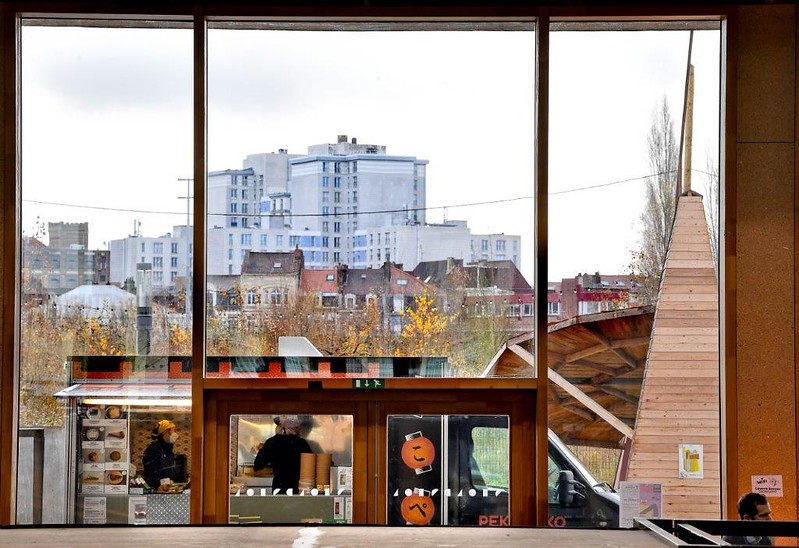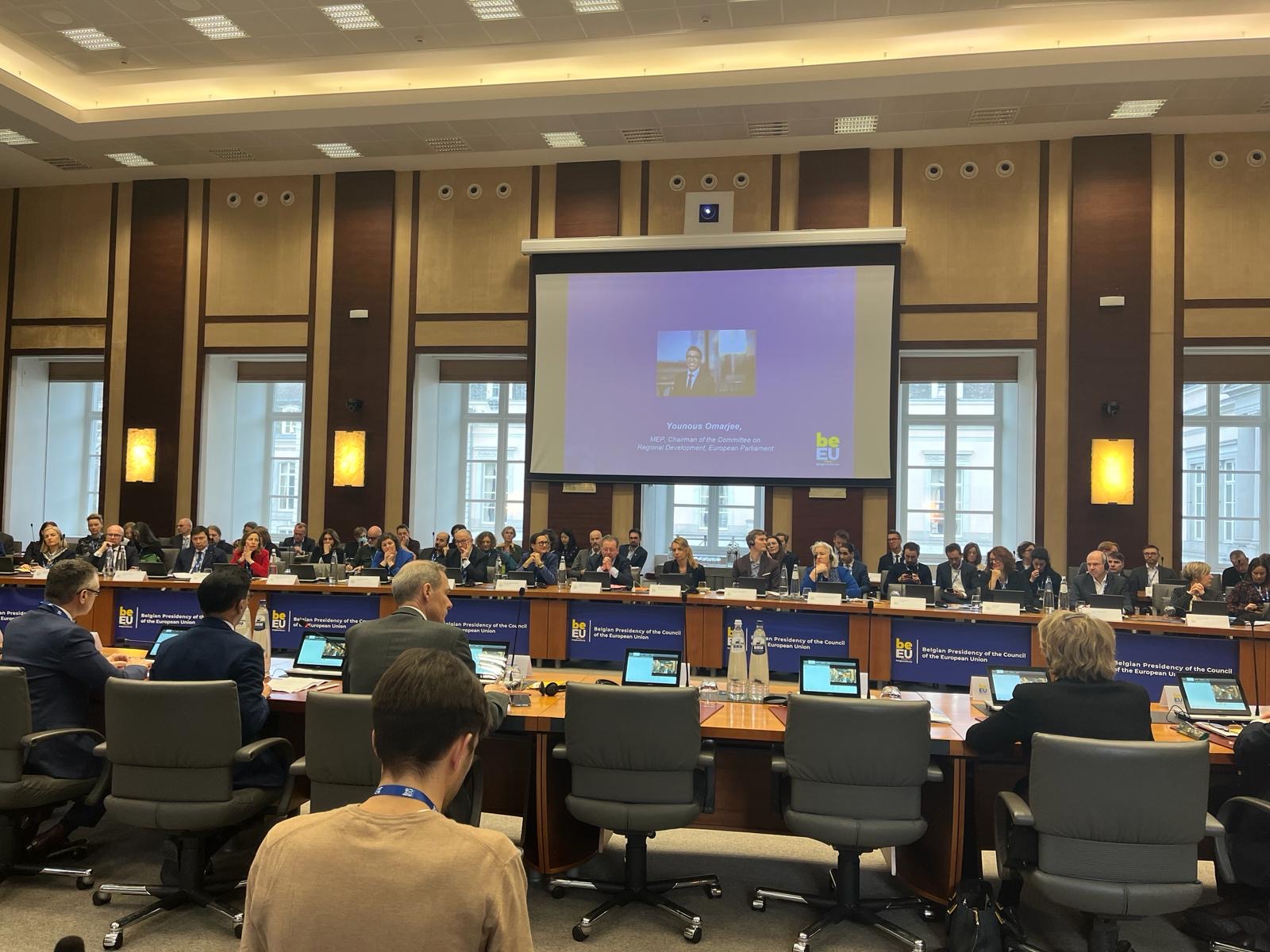
Skills and cities: a cross-cutting theme for the EU Urban Agenda
To do so they need qualified, skilled workforces. EU Ministers responsible for Urban Matters identified ‘Skills for urban transitions’ as a potential theme for a future Urban Agenda for the EU (UAEU) multilevel partnership, in Gijon in November 2023. Although visible linkages between urban and skills policymaking are rare at the EU level, this critical issue is woven into the fabric of the UAEU. Let's delve deeper into this connection.
European skills context
In response to the challenges posed by Covid-19 and the rapid shifts towards green and digital transformation, the 2020-2025 European Skills Agenda strives to "help individuals and businesses develop more and better skills and to put them to use". It focuses on upskilling and reskilling, promoting digital literacy, and enhancing vocational education and training.
The EU currently provides a strong basis for addressing skill shortages, mainly in the context of economic development and the digital society. Expanding this perspective to include urban transformation and planning is a step forward. Cities play a pivotal role in these domains, supporting initiatives such as the European Green Deal and the Just Transition Mechanism to ensure that 'no one is left behind.'
The skills challenge for cities powering transformation
Cities of all sizes lack skilled workers, both in local administrations and the wider workforce – ranging from construction to childcare, data analysis to spatial planning. In small cities, this can be exacerbated by demographic change and difficulties attracting young graduates, prompting a recent EUI-Innovative Actions call for projects harnessing talent in shrinking cities.
In its call for better integration of urban matters in European policies and institutions, the Brussels Declaration of European Mayors, signed on 24 January 2024, recommends to “support cities and metropolitan areas by enhancing their capacities and skills” for implementing for example the Sustainable Development Goals and EU regulations on a local level. This will be promoted throughout the Belgian Presidency of the Council of the European Union.
The New Leipzig Charter says adequately skilled employees are vital for cities to improve urban governance, while also highlighting the role of cities in “promoting lifelong learning tools to empower citizens and public administrations, fostering digital skills and social cohesion”.
"The transformative power of cities provides equal opportunities and environmental justice for all, regardless of gender, socioeconomic status, age and origin – leaving no one behind,” it states. “All social groups, including the most vulnerable, should have equal access to services of general interest, including education, social services, health care and culture."
Skills in the EU Urban Agenda
Recognised by the Gijon Declaration as an essential instrument for multilevel governance, UAEU addresses three pillars of EU policymaking and implementation: better regulation, better funding, better knowledge. Its partnerships involve local, regional, and national governance levels, together with private sector, research and non-profit organisations.
Since the UAEU partnership on ‘Jobs and skills in the local economy’ concluded in 2019, city-level support for skills development and education has continued to feature across UAEU. Here are some examples from current partnerships:
- Skills to implement an intersectional approach - UAEU Cities of Equality partnership
This new partnership kicks off on 31 January 2024. In preparation, external expert Orna Rosenfeld produced an Ex-Ante Assessment on ‘Cities of equality’. Recommendations include developing toolkits for “an intersectional approach” to mainstreaming equality in urban policies, practices and implementation at city level, “highly valuable” in ensuring no one is left behind. However, she says: “the skills to implement this approach are still limited”.
Rosenfeld notes that most legislative and policy documents on equality and non-discrimination do not clearly develop an urban link. However, they address discrimination in the urban environment, citing for example lack of access to housing and services including transportation, education, and health, and aspects of spatial segregation. Varying levels of access to education across and between cities is a key contributor to inequality.
- Improving access to funding for strengthening skills - UAEU Food partnership
An EAA was also published on Food before this partnership kicks off on 30 January 2024. Improving access to funding for strengthening skills is identified as a key action area.
To support capacity building and knowledge exchange, EAA expert Roxana Triboi recommends developing a regional food systems observatory, identifying and assessing relevant funds. This would help regional stakeholders “enhance their capabilities, establish partnerships, and acquire the necessary skills to advance sustainable and resilient food systems in their respective regions.’’ Funds include: DG REFORM funds; Governance & Public administration and Technical support for implementing the European Green Deal for training. ESF+ and ERDF regional development funds (Policy Objective 1 (PO1) for a Smarter Europe, PO2 for a Greener Europe) are available to support partnerships, building capacity and new skills.
New skills and innovation in sustainable food systems can also be developed by helping new and existing entrepreneurs access diverse funds. These include funding for sustainable agriculture and food production, Common Agricultural Policy funds, measures like LEADER, ERDF (e.g., PO1 Smarter Europe, PO2 Greener Europe); and ESF+. Promoting sustainable agriculture, innovative practices, and the development of new skills, “ultimately fosters a vibrant and resilient food entrepreneurship ecosystem”.
- Certification, workshops and training as concrete actions - UAEU partnerships on Greening Cities and Sustainable Tourism
These partnerships have been active since November 2022 defining concrete actions to meet identified thematic challenges. Resulting action plans will be published in 2024. Again, the issue of skills development comes up regularly, particularly under UAEU’s ‘better knowledge’ pillar, with proposals such as certification, workshops and training. For example, meeting in Seville in 2023, the Sustainable Tourism partnership discussed ways to enhance skills related to sustainable tourism management. Their Orientation Paper includes many references to improving skills for tourism, particularly in the areas of digital technology and sustainability.
Looking forward
The topic of skills under the Urban Agenda for the EU is about what needs to be done going forward, as skills are important for closing inequality gaps and driving the digital and green transitions, mitigating and countering social, economic and environmental challenges – and cities are pivotal in driving urban transformations.
Get involved and follow next steps on our website!
